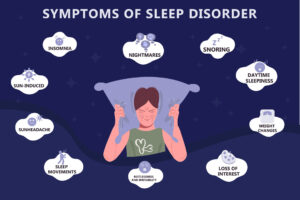
Introduction
Loneliness is a universal human experience that affects people of all ages and backgrounds. It can occur due to various reasons, including social isolation, loss of a loved one, or a lack of meaningful connections. While occasional loneliness is a natural part of life, chronic loneliness can have severe repercussions on mental health. This article explores the impact of loneliness on mental health, examining its causes, effects, and potential strategies to mitigate its negative consequences.
Understanding Loneliness
Definition and Types:
Emotional Loneliness:
This type of loneliness arises from the absence of a close emotional bond, such as a partner or best friend.
Social Loneliness:
This occurs when an individual lacks a broader social network or feels disconnected from their community.
Causes of Loneliness:
Life Transitions:
Major life changes such as moving to a new city, retiring, or starting a new job can lead to feelings of loneliness.
Social Isolation:
Physical isolation, whether voluntary or due to circumstances like living in a remote area or experiencing a pandemic, can contribute to loneliness.
Loss and Grief:
Losing a loved one or experiencing a breakup can result in profound loneliness.
Mental Health Issues:
Conditions like depression and anxiety can create a cycle where loneliness exacerbates the mental health condition, and vice versa.
The Psychological Impact of Loneliness
Increased Risk of Depression and Anxiety:
Depression:
Loneliness is closely linked to depression, as the lack of social support and connection can lead to feelings of hopelessness and sadness.
Anxiety:
Loneliness can heighten anxiety levels, causing individuals to feel more fearful and worried about their social interactions and relationships.
Cognitive Decline:
Memory and Learning:
Chronic loneliness can negatively impact cognitive functions such as memory, attention, and learning abilities.
Dementia:
Research suggests that prolonged loneliness may increase the risk of developing dementia and other cognitive impairments.
Impact on Self-Esteem and Self-Worth:
Negative Self-Perception:
Lonely individuals often develop a negative self-image and lower self-esteem, believing they are unworthy of social connections.
Social Withdrawal:
The fear of rejection and negative self-perception can lead to further social withdrawal, perpetuating the cycle of loneliness.
Increased Stress Levels:
Chronic Stress:
Loneliness triggers the body’s stress response, leading to chronic stress which can have detrimental effects on both mental and physical health.
Physical Symptoms:
Chronic stress caused by loneliness can manifest as headaches, fatigue, and other physical ailments.
The Physical Health Consequences of Loneliness
Cardiovascular Health:
Heart Disease:
Loneliness has been linked to an increased risk of heart disease and high blood pressure, likely due to the stress it places on the body.
Stroke:
Studies have shown that loneliness can also elevate the risk of stroke.
Immune System:
Weakened Immunity:
Loneliness can suppress the immune system, making individuals more susceptible to infections and illnesses.
Inflammation:
Chronic loneliness has been associated with increased levels of inflammation, which can contribute to various health problems.
Mortality Risk
Premature Death:
Research indicates that loneliness and social isolation can significantly increase the risk of premature death, comparable to other well-known risk factors such as smoking and obesity.
Strategies to Mitigate Loneliness
Building and Maintaining Relationships:
Quality Over Quantity:
Focus on developing meaningful relationships rather than a large number of superficial connections.
Reaching Out:
Take the initiative to reach out to friends, family, and acquaintances. Simple gestures like phone calls, texts, or social media interactions can make a big difference.
Engaging in Social Activities:
Join Groups or Clubs:
Participating in group activities, clubs, or organizations that align with your interests can help you meet like-minded people and build connections.
Volunteer:
Volunteering can provide a sense of purpose and belonging while allowing you to meet new people and give back to the community.
Practicing Self-Compassion:
Positive Self-Talk:
Challenge negative thoughts about yourself and practice positive self-talk to improve your self-esteem and self-worth.
Self-Care:
Engage in self-care activities that promote your mental and physical well-being, such as exercise, hobbies, and relaxation techniques.
Seeking Professional Help:
Therapy:
Consider seeking help from a mental health professional to address feelings of loneliness and develop coping strategies.
Support Groups:
Joining support groups can provide a sense of community and understanding, allowing you to connect with others who share similar experiences.
Using Technology Wisely:
Online Communities
Engage with online communities and social media platforms to stay connected with others, especially if physical interaction is limited.
Balance:
Ensure a healthy balance between online interactions and face-to-face connections to avoid over-reliance on digital communication.
Conclusion
Loneliness is a pervasive issue that can have profound effects on mental health, leading to depression, anxiety, cognitive decline, and various physical health problems. Understanding the impact of loneliness and implementing strategies to mitigate its effects is crucial for maintaining mental well-being. By building and maintaining meaningful relationships, engaging in social activities, practicing self-compassion, seeking professional help, and using technology wisely, individuals can combat loneliness and enhance their mental health. Remember, reaching out for support and fostering connections is a sign of strength, not weakness, and can significantly improve your overall quality of life.